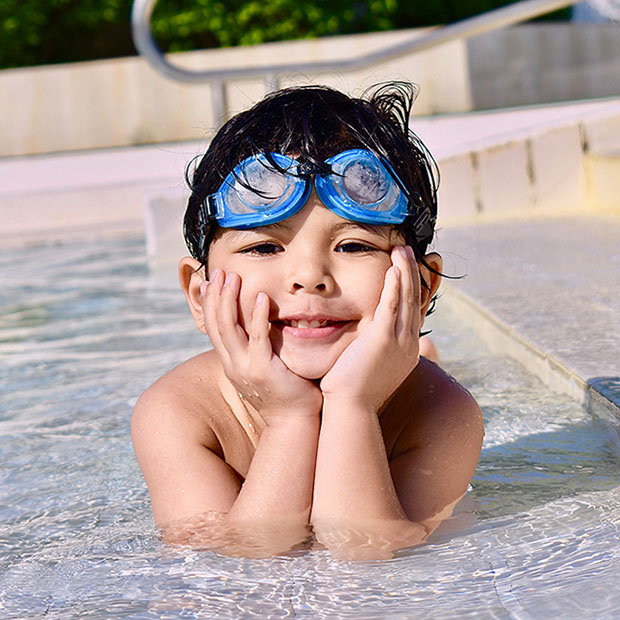Water Activities and Eye Safety

It’s summertime and that means lots of us are going to be spending as much time in the water as we can.
Before you dive in, we recommend learning a little about some eye safety considerations that come with water activities (whether you prefer a pool, river, lake, ocean, water park, or backyard Slip N Slide)
Why Water Can Make Your Eyes Burn
Anyone who has opened their eyes underwater at the pool has felt the sting of chloramine. That’s the name of the compound that forms when chlorine binds to contaminants like dirt, oils, and urine that get in the water. It might sound gross, but it’s actually chlorine doing its job and killing the harmful bacteria. Most of the time, chloramine will only cause mild, temporary irritation, and that can also happen if the pH of the pool isn’t balanced.
Keep Your Goggles On
Goggles are a wonderful way to protect your eyes against any contaminants in the water. Find a pair that fits your head well and forms a good seal over your eyes. If they’re so tight that they give you headaches or are so loose that they fall off, that’s no good! It’s even possible to get prescription goggles if you’re going to be spending a lot of time underwater and want to see as clearly as possible.
Leave Your Contacts on Land
A few microorganisms can survive contact with the chlorine in pool water, which is bad news for anyone who wears contact lenses. They act like Petri dishes for these hardy germs, which love moist, warm environments to multiply in. If you do wear contact lenses while swimming, please also wear goggles to reduce the risk of pool water getting on your contacts.
The most dangerous microorganisms living in water are acanthamoeba. While they live in every body of water on the planet, they usually aren’t anything to worry about. However, wearing contacts while swimming gives them much more access to the surface of the eye than they would get otherwise. In the worst case scenario, they burrow into the cornea and cause acanthamoeba keratitis, a condition that can come with permanent blindness.
Even when we leave the germs aside, contacts on their own are a problem in water. They aren’t designed to be submerged, and it could lead to them swelling up and tightening around the cornea, causing irritation, or coming loose and falling out. Overall, it’s safer to leave the contacts at home and stick to glasses and goggles while enjoying the water.
We Can Help You Find the Best Goggles
Finding the perfect pair of goggles can be as tricky as finding the right sunglasses, but we can help! Stop by our practice or give us a call and we’ll be happy to discuss underwater eyewear with you. Even if you don’t need a prescription pair, everyone needs good eye protection.
